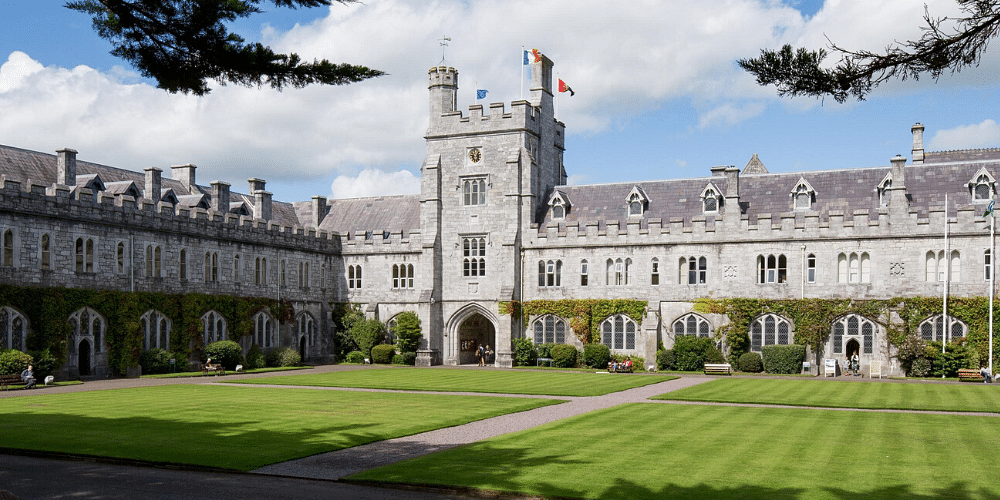Our graduates of History can be assured that the past record of their predecessors in gaining employment is second to none. UCC’s School of History is committed to delivering degrees designed to develop students’ skills to respond effectively to the demands of the world of work.
The careers and workplace prospects for History graduates are excellent, which reflects the wide applicability of the discipline’s skills and its high standards. Contrary to popular perceptions, an MA in History does not necessarily lead to employment in the teaching profession, academia, libraries, research, archives, and so forth. It could do so, but the versatility of History graduates is well-known.
Past MA graduates work in all walks of life nationally and across the globe, not least in government, multinational firms and international organisations. Many have risen to positions of national and international responsibility and influence (entrepreneurs, top-level management, marketing managers, advertising, ambassadors, writers, politicians, museum directors, professors, technologists, think tanks etc.).
Why? The innovative teaching and assessment regime offered by the School instills practical transferable skills (e.g. web displays, blogging, report writing, presentations, portfolios) supplementing the core strengths of the discipline (e.g. analysis, source criticism, inquiry-driven, meticulousness, information management, synthesis, clarity, breadth, and depth of perspectives).
Depending on individual choice, other skills may be cultivated such as conference planning and delivery, event planning, financial management, team building, leadership, negotiation, representation of collective interests etc. Optional engagement with the History Postgraduate Association, the Historical Society and School events (seminars, conferences, symposia) add additional competencies.
Occupations associated with an MA in History?
Our graduates have a strong record of success in the following fields:
-
Broadcasting and the media
-
Central and local government (Ireland, the UK, and Europe)
-
Civil Service (Ireland, the UK, and Europe) and Public Service
-
Diplomacy and statecraft (Department of Foreign Affairs)
-
Heritage and museums
-
International and regional organisations (UN, EU etc.)
-
Journalism
-
Librarianship, archives, and information management
-
Non-governmental organisations
-
Politics (local, national and European)
-
Policy research and formulation
-
Public relations
-
Publishing
-
Teaching and universities (Ireland and the world)
Many of our graduates succeed in other fields too:
-
Conference and exhibition managers and organisers
-
Business and entrepreneurship
-
Customer service occupations
-
Event planning and delivery
-
Law
-
Management
-
Marketing and sales professionals
-
University management and administration (in Ireland, UK, USA etc.)
Students often progress to successful PhD study in all areas of History becoming tenured university lecturers and researchers in Ireland, the UK, US, Canada, Australia, Europe and elsewhere.
What are our graduates doing?
-
Janine Hildebrandt specialised in Medieval History and is now permanently employed in project management in Germany.
-
Katriona Burke specialised in Medieval History and now works with the Office of Public Works in Ireland.
-
Fiona McCarthy who worked in Medieval History is now a second-level teacher. There are many examples of this career path.
-
Paul Flynn, who studied International Relations, now works in the British Cabinet Office in London.
Several MAs work in various government departments including the Department of Foreign Affairs, Department of Finance, and Department of Agriculture.
Many who studied media history at MA level are involved in the broadcasting and media professions in various capacities (editing of RTÉ Radio 1 programme ‘The Media Show’, programme director of Cork Film Festival, sub-editor of The Cork Independent, journalism, TV researcher, book editor).
Numerous MA holders have won Irish Research Council Government of Ireland PhD Scholarships and have gone on to complete PhDs at UCC, or elsewhere in Ireland, the UK and the US. Several have proceeded to academic careers. For instance, Tomás O’Sullivan worked on Early Christian Ireland, and following a PhD, is now a professor at the University of St. Louis. Another, Dr. Caroline Connolly, was a lecturer at the University of Kent but has now moved to lecture in the Communications Department of Dublin City University.
